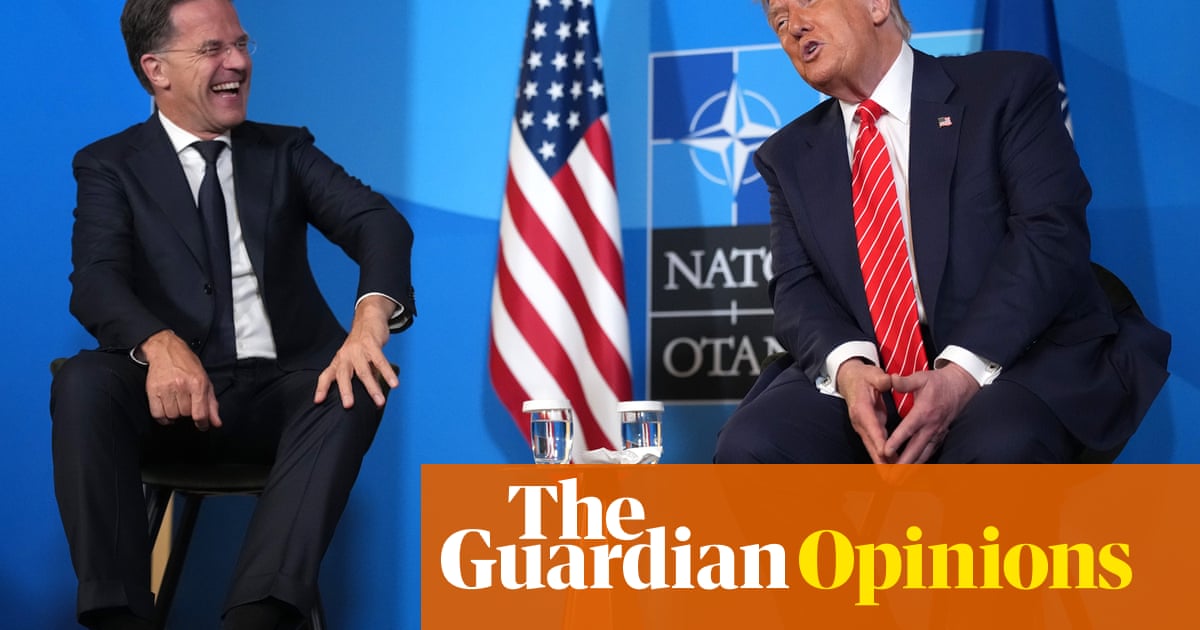Is your name Barron, Donald Jr, Eric, Ivanka or Tiffany Trump? No? Then I regret to inform you that President Donald John Trump is almost certainly not your daddy. I say “almost certainly” because narcissistic billionaires do have a nasty habit of spawning willy-nilly. Just look at Elon Musk and Pavel Durov – the latter is the Telegram founder, who hasmore than 100 childrenin 12 countries via sperm donation.
Still, unless you are a veryhigh-IQindividual, with an orange glow, an insatiable appetite for money-making schemes, and a weird belief thatyou invented the word “caravan”, I think it’s safe to say that you’re probably not Trump’s offspring.
Why am I taking great pains to spell this out? Because a disturbing condition called Trump daddy derangement syndrome (TDDS) is sweeping the world – the main symptom of which is an irresistible urge to call the president of the United States “Daddy”.
Former Fox News host Tucker Carlson bears some blame for the spread of this ailment. While speaking at a Trump rally last October, Carlson delivered an unusual speech in which he compared the US under Trump to a patriarchgiving his naughty teenage daughtera “vigorous spanking”. Rather than immediately losing the contents of their stomach because of this imagery, the Maga-loving crowd lapped it up. When Trump came on stage later they yelled “Daddy’s home!” and “Daddy Don!” Which, of course, plays right into Trump’s self-mythologising as a hypermasculine strongman who will be aprotector of women“whether they like it or not”.
While TDDS remained fairly dormant for a few months after that, it seems we are suffering a new outbreak. Last week Nato secretary general Mark Rutte addressed Trump’s comments about Israel and Iran not knowing “what the fuck they’re doing” byhelpfully explaining that: “Sometimes Daddy needs to use strong language.”
And sometimes a Nato chief needs to watch their language. After his comments caused a social media storm, Rutte rapidly back-pedalled. “The daddy thing, I didn’t call him ‘Daddy,’” Ruttetold reporterslater that day, despite being on the record saying just that. “Sometimes, in Europe, I hear … countries saying: ‘Hey, Mark, will the US stay with us?’ And I said that sounds a little bit like a small child asking his daddy: ‘Hey, are you still staying with the family?’ So in that sense, I used ‘daddy’ – not that I was calling President Trump Daddy.”
Nice try, Mark, but I’m not sure that makes things better. Rutte, a Dutchman, is basically calling Europe a helpless child who needs Trump’s approval.
Whatever Rutte meant, Trump and his followers seem to have taken “daddy” as a compliment. Last week Jonathan Lindsey, a Republican lawmaker, told fellow Michigan senate members that a lot of Americans see Trump as a father figure and more people should start referring to him as “Daddy”. Gay Democratic Michigan senator Jeremy Mossthen replied: “You don’t want to know what daddy means in my community.” Just to spell it out, “daddy” has been gay slang for an older man, often monied, who is sexually involved with a younger man for almost as long as Trump has been alive.
Meanwhile, Trump spoke approvingly of Rutte’s comments,saying: “I think he likes me.”He added: “If he doesn’t, I’ll let you know. I’ll come back and I’ll hit him hard, OK? He did it very affectionately. Daddy, you’re my daddy.” Trump’s fundraising operation is also flogging T-shirts with his mugshot and the word “DADDY” on themfor just $35. Sigmund Freud, sadly, could not be reached for comment on all this. But if he were available, I think even he might have said: “Mummy, please make this stop.”
Arwa Mahdawi is a Guardian columnist
